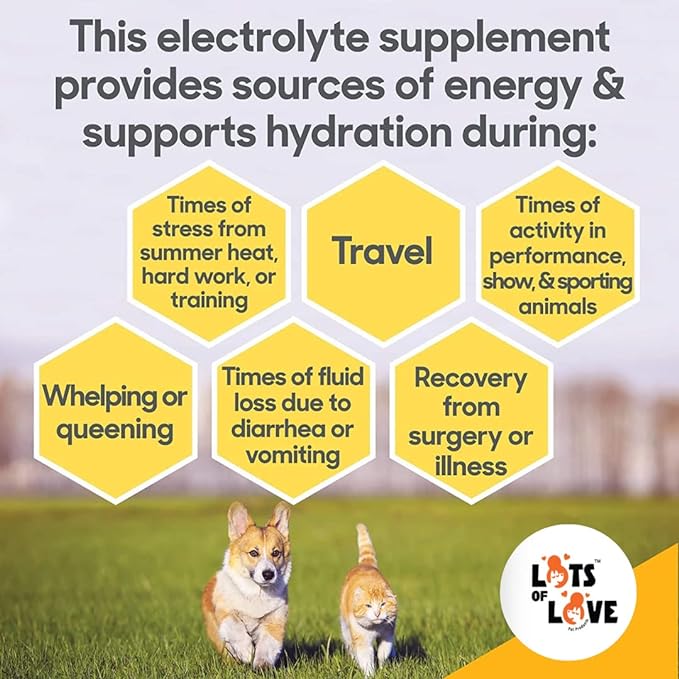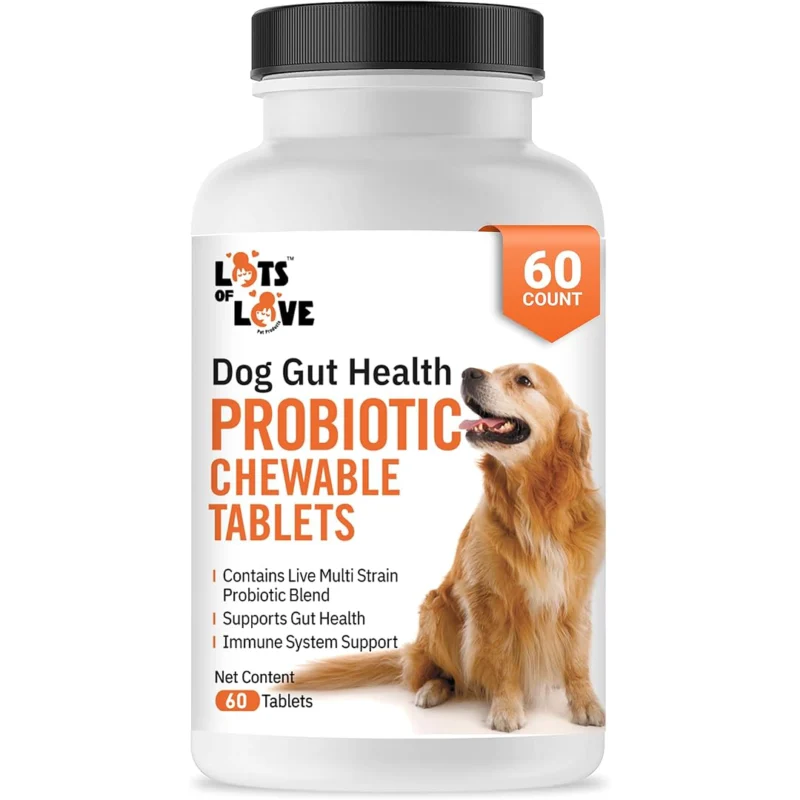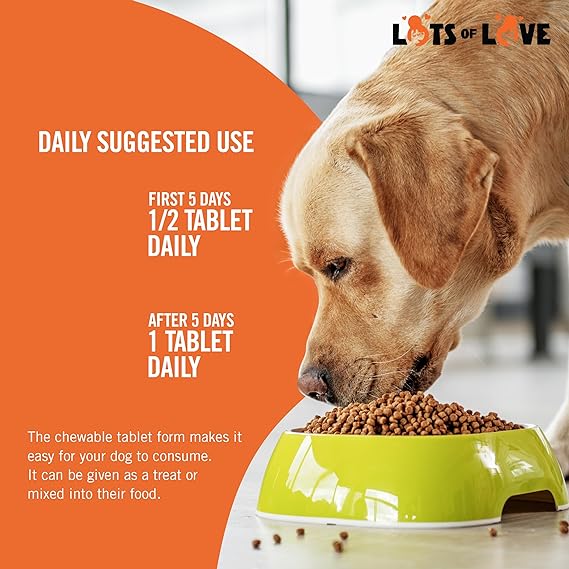Similar to humans, dogs can have upset stomachs from time to time. There can be a wide variety of reasons for a dog’s upset stomach, which can make it difficult to pinpoint the cause and to know what steps you should take to treat it. Thomas Labs® is here to help! We’ve put together a list of common causes and symptoms of upset stomach in dogs, as well as how to treat the issue.
Causes of an Upset Stomach in Dogs
Similar to humans, there are a variety of different reasons why a dog may get an upset tummy. Here are a few of the common causes of an upset stomach in dogs:
- One likely cause of your dog’s upset stomach is that he ate something he shouldn’t have eaten. Many common items within our homes and yards can be toxic to dogs and cause an upset stomach.
- Human medications: There are a variety of human medications that can be poisonous to dogs, including acetaminophen, ibuprofen, painkillers, heart medications, antidepressants, and more.
- Pet medications: Ingesting certain pet medications that are not intended to be ingested and overdosing on medication can be toxic to dogs. Common problems include painkillers, flea and tick products, and dewormers.
- Plants: Some plants can be toxic to dogs, including azaleas, poinsettias, lilies, oleanders, daffodils, English ivy, chrysanthemums, and more.
- Household items/chemicals: It probably isn’t too surprising that many household chemicals can be very toxic to dogs. Some of these items include bleach, anti-freeze, fire logs, fertilizers, weed killers, rat poison, household cleaners, and more.
- Human food: Most dogs love table scraps, but unfortunately, some human foods can be harmful to dogs. Some of these foods include grapes, caffeine, alcohol, chocolate, raisins, avocados, dairy products, garlic, raw meat, mushrooms, xylitol (artificial sweetener in some sugar-free candy and gum), and more.
- Foreign objects: Dogs are curious animals, and they often explore new objects with their mouths. From rocks to socks and everything in between, your dog might accidentally swallow just about anything!
Dog owners need to understand what common household items can be potentially toxic to their dogs. Then they can take steps to prevent an incident and be prepared with a plan if an incident does occur. Learn more about preventing pet poisoning and what to do if your pet is poisoned.
- Stress can also cause an upset stomach in dogs. Some dogs suffer from separation anxiety, and other dogs can get stressed when traveling, moving, gaining a new family member, being in a new environment, and much more.
- Changing your dog’s food can cause an upset stomach, or your dog may have a sensitivity to something in his food. This is why it’s important to gradually change your dog’s diet. If you think your dog may be allergic or sensitive to something in his dog food, check for other common signs, such as inflammation and itching of the skin.
- Another possible cause of your dog’s upset stomach is a bacteria imbalance in the gut. This is commonly caused by antibiotic use, illness, infection, parasites, deworming, or an improper diet.
- Other potential causes of an upset stomach in dogs include pancreatitis, leaky gut syndrome, eating too fast, and stomach bloating.
Symptoms of an Upset Stomach in Dogs
Two common signs of upset stomach in dogs are vomiting and diarrhea. Other symptoms include loss of appetite, fatigue, and excessive gulping to combat reflux. If your dog is nauseous, he may eat grass to try and soothe his stomach or induce vomiting.
Treating Your Dog’s Upset Stomach
If your dog is suffering from an upset stomach, here are some tips to try and soothe his discomfort and get his digestive tract back on track!
- Withhold food for 12 to 24 hours. Continuing to feed your dog when he has diarrhea or is vomiting can sometimes just make the situation worse. Giving the gastrointestinal system a break and letting the stomach empty can help things calm down. After withholding food, start with a bland diet. Some dog owners prefer to start with boiled chicken with rice.
- Make sure your dog is staying hydrated. Vomiting, diarrhea, and loss of appetite can quickly lead to dehydration in dogs. Replacing lost fluid is essential for avoiding dehydration, which can become a serious issue very quickly. If drinking water is making your dog’s stomach even more upset, try offering ice cubes first.
- Replace lost electrolytes. Your dog will also need electrolytes to help avoid or correct an electrolyte imbalance. Giving your dog an electrolyte replacement supplement can help support normal hydration, replace lost electrolytes, and encourage water consumption during periods of vomiting and/or diarrhea.
- Give bone broth to your dog. Bone broth helps keep your dog hydrated, plus it can help soothe the stomach. You can also freeze bone broth into ice cubes and offer those to your dog.
- Offer canned pumpkin to your dog. Canned pumpkin can help with indigestion and an upset stomach. (Note: Make sure to get canned pumpkin; not pumpkin pie mix!) Smaller dogs, or dogs approximately five pounds, can be fed ½ teaspoon of canned pumpkin; larger dogs, or dogs approximately 75 pounds, can be fed 1 tablespoon. Sweet potatoes can also help settle the stomach.
- Give your dog a probiotic. Probiotics help boost the immune system, support normal bowel function, and reestablish a healthy gut by replacing the healthy bacteria in the gut.
- It may help to give your dog a little bit of Pepto-Bismol or Pepcid crushed and mixed with water, although you should always consult your veterinarian before doing so.
- Consult your veterinarian. It’s always a good idea to talk to your veterinarian before starting a new treatment plan. Your vet knows your dog best and is familiar with his medical history, so it’s important to ask for their expertise. If you think your dog ingested a foreign object or something poisonous, you should seek help immediately.
When To Be Worried
If you notice your dog has an upset stomach, but you aren’t sure what caused it, you should keep a close eye on him. Symptoms should slowly subside over 24 to 48 hours. If vomiting, diarrhea, or loss of appetite persists after 48 hours, you should consult your veterinarian.
Other symptoms to be worried about include blood in your dog’s urine, vomit, or stool; collapse; or if vomiting or diarrhea gets worse. These could be symptoms of a more serious underlying condition causing your dog’s upset stomach.
FAQs
Common signs of an upset stomach in dogs include vomiting, diarrhea, excessive drooling, loss of appetite, and lethargy. You may also notice your dog pacing or showing signs of discomfort, such as whining
An upset stomach in dogs can be caused by various factors, including dietary indiscretion (eating something they shouldn’t), food allergies or sensitivities, infections (bacterial or viral), parasites, stress or anxiety, and underlying health issues such as pancreatitis or gastrointestinal disorders. Sudden changes in diet or overfeeding can also contribute to digestive upset.
Yes, dehydration is a significant concern when your dog has an upset stomach. Vomiting and diarrhea can lead to rapid fluid loss, making it essential to ensure your dog stays hydrated. Always provide access to fresh water, and if your dog shows signs of dehydration, such as dry gums, lethargy, or excessive thirst, consult your veterinarian for guidance.
To relieve your dog’s upset stomach at home, offer a bland diet of boiled chicken and plain white rice, and ensure they have access to fresh water to prevent dehydration. Feed smaller, more frequent meals instead of large portions, and consider adding plain canned pumpkins to help soothe their digestive system. Always monitor their condition, and consult a veterinarian if symptoms persist for more than 24 hours.

 DOG HEALTH SUPPLEMENTS
DOG HEALTH SUPPLEMENTS DOG DIGESTIVE SUPPLEMENTS
DOG DIGESTIVE SUPPLEMENTS EYE & EAR DROPS
EYE & EAR DROPS SKIN & COAT SUPPLEMENTS
SKIN & COAT SUPPLEMENTS CAT SUPPLEMENTS
CAT SUPPLEMENTS



